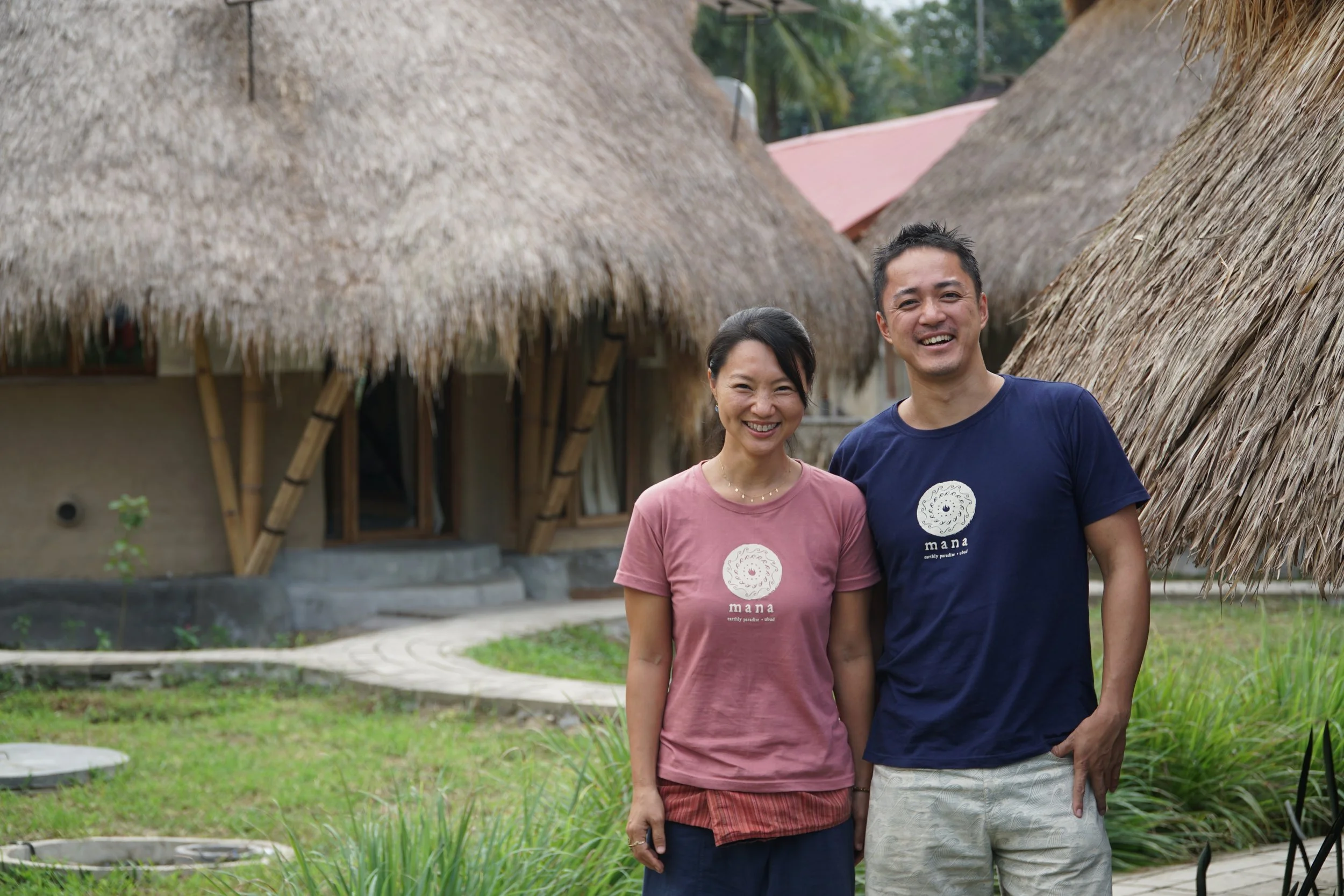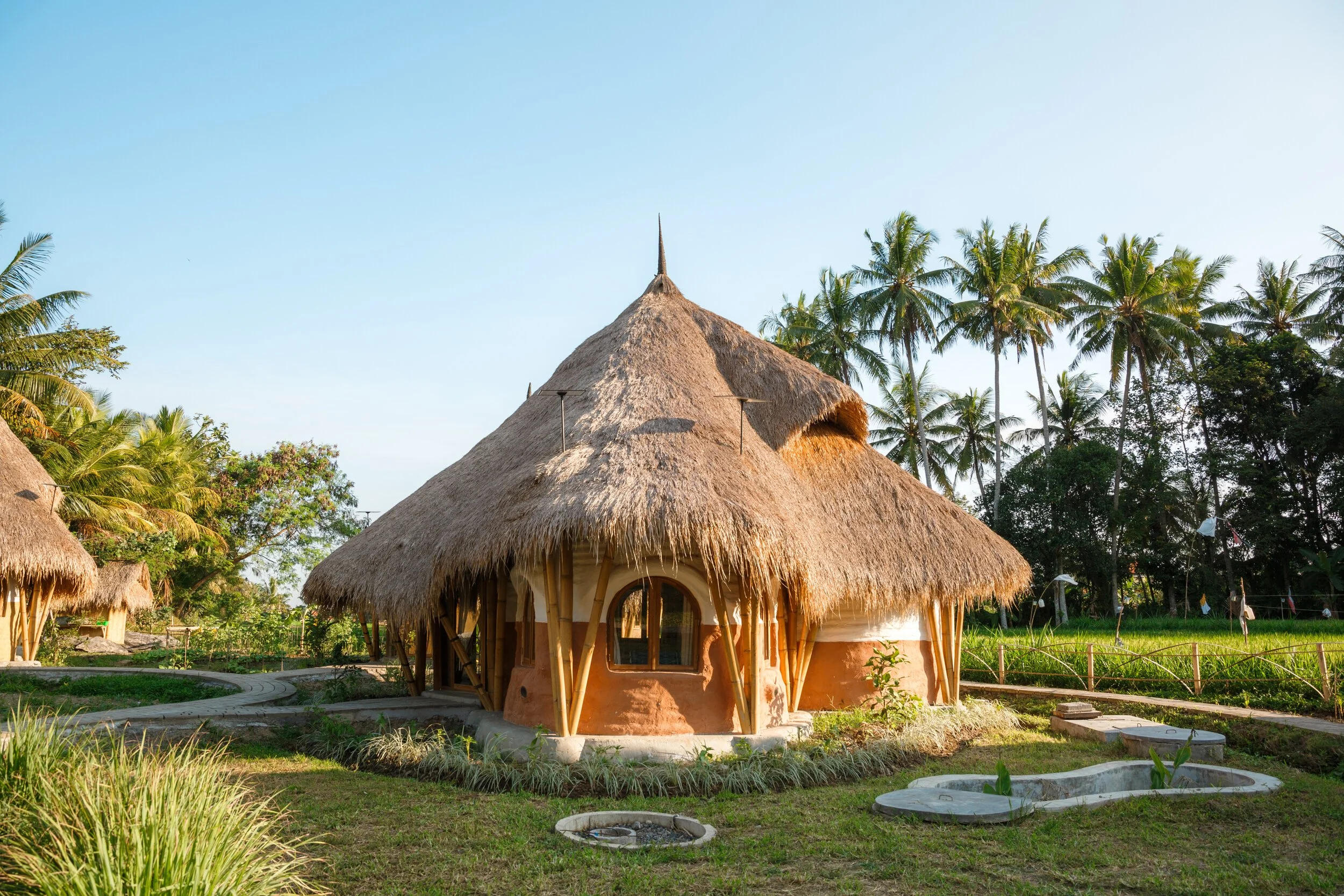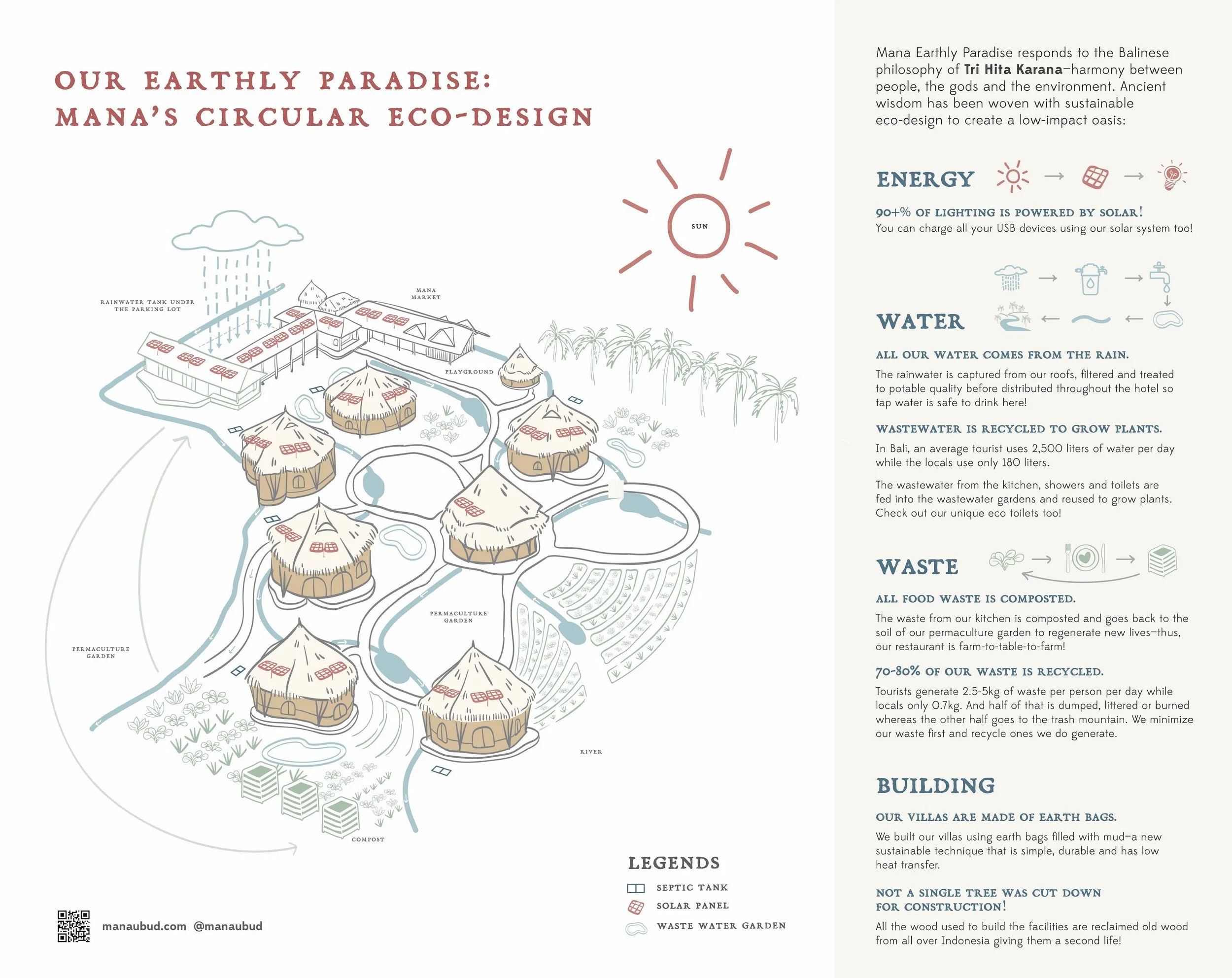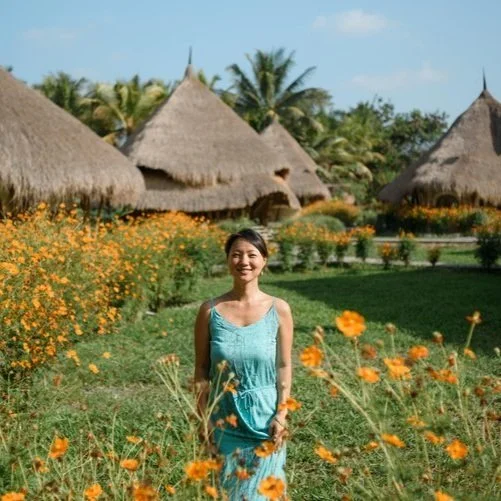Aska & Tomo Hamakawa:
The Husband-and-Wife Team Running Southeast Asia’s First B-Corp Certified Hotel
By: Jeremy Tran
Nestled amidst the lush greenery of Bali's picturesque landscapes, just beyond the bustling streets of Ubud, lies Southeast Asia's first B Corp-certified hotel: Mana Earthly Paradise. What sets this eco-conscious sanctuary apart may surprise many – it's not operated by a traditional hospitality conglomerate but rather by an NGO, Earth Company.
Steering Earth Company's multifaceted endeavors, including Impact Academy and Impact Heroes, are the dynamic husband-and-wife team, Aska and Tomo Hamakawa.
Hailing from Japan, the Hamakawas boast impressive pedigrees befitting impact entrepreneurs. Both hold advanced degrees from prestigious U.S. universities and have garnered acclaim for their unwavering commitment to positive impact.
In 2014, both were awarded the prestigious “Dalai Lama’s Unsung Heroes of Compassion” Award. Aska's leadership prowess earned her a coveted spot among Asia 21 Young Leaders in 2022, while she was also featured in Newsweek's esteemed "Women of the Future" in 2018. Tomo's journey has been equally illustrious, with notable accolades including his tenure as an Asia Pacific Leadership Program Fellow in 2008 and as an Innovation Fellow at the prestigious East-West Center in 2020.
Here are the key takeaways on the ethos and aspirations that drive Aska and Tomo’s transformative work from our Co-Founder Jeremy Tran’s conversations with them.
Aska (L) and Tomo (R) Hamakawa, Co-Founders of Earth Company.
“People who lead one of the most sustainable ways of living are at the frontline of the climate crisis.”
During her time living in Samoa, Aska was confronted with a stark reality: despite emitting minimal carbon emissions by leading one of the most eco-conscious ways of living, the people of low-lying islands like Samoa found themselves disproportionately impacted by the ravages of climate change.
This eye-opening revelation sparked a profound realization within Aska: the economic development pursued by the global community created far-reaching consequences for communities who lived far and away from the spotlight.
That transformative experience prompted Aska to embark on a career dedicated to sustainability and climate action. She set out to amplify the voices of those on the front lines of environmental adversity and advocate for solutions that protect both the planet and its people.
“Mana Earthly Paradise is the physical embodiment of Earth Company’s vision on regeneration.”
When the couple lived in Bali for Tomo’s job with an NGO, Aska was already running Earth Company. Recognizing the potential for synergistic partnership, Tomo shortly joined forces with Aska to focus on scaling Earth Company’s impact.
Explaining their decision to establish and expand Earth Company's operations in Ubud, Aska elucidated their strategic choice to immerse themselves within a community steeped in health consciousness and environmental stewardship. This deliberate placement allowed them to build a supportive ecosystem conducive to their mission of promoting regenerative business practices.
Central to their vision was to demonstrate that a regenerative business model can be profitable.
With no prior hospitality management experience, they set out to lean on the Balinese Tri Hita Karana Approach – harmony between people, the Gods, and the environment – to build Mana Earthly Paradise. For example, earthbag buildings, known for their durability and efficient heat management, are used to minimize impact on the environment.
Furthermore, the Mana Earthly Paradise team integrates a range of regenerative practices, including rainwater harvesting, solar energy utilization, wastewater circulation, and the incorporation of reclaimed wood to live up to their Low Impact Commitment.
An important milestone in their journey came with attaining B Corp™ certification, making Mana Earthly Paradise the first in Southeast Asia to receive this recognition.
For the Hamakawas, this accolade sends a message that an eco-conscious lifestyle and travel is neither luxury nor inconvenient, but rather inclusive, exciting, and value-aligned.
It is all about amplifying impacts.
For Aska and Tomo, the ability to showcase Mana Earthly Paradise as a living example of regenerative business is a source of immense pride and excitement.
Aska passionately highlights that at Mana Earthly Paradise, guests are invited to recharge their spirits and gain fresh insights into life, from the simple act of walking barefoot amidst the serene rice fields to unplugging from the digital world and indulging in meditative strolls.
As Aska articulates, the hotel is built as a haven for individuals seeking to reconnect with their inner selves and ignite a sense of awakening that leads to meaningful action toward pressing social and environmental challenges, both locally and globally.
In addition to the hotel, Mana Earthly Paradise boasts two complementary ventures: Mana Kitchen and Mana Market.
While employing local staff is important – with the entire ground team being Balinese and 40% of them from neighboring villages, the Hamakawas are equally committed to impacting the broader value chain.
This commitment is exemplified through partnerships with local farmers, who are tasked with supplying organic produce to Mama Kitchen, and collaboration with artisanal glass smiths to repurpose discarded materials to minimize waste.
Mana Market, a vibrant showcase of local entrepreneurship, serves as a testament to their dedication to ethical sourcing and community empowerment. Vendors and artisans are asked to go through a vetting process to ensure that they hire local staff and that their products are chemical-free and made of ethically sourced materials.
Redefining Profitability in the Sustainability Equation.
In 2015, amid the fervor of the COP 21 conference in Paris, a sobering truth echoed through the halls of global diplomacy: "We're the first generation that is feeling the impacts of climate change. We're the last generation who can do something about it." These words, initially spoken by scientists and later underscored by former U.S. President Obama, served as a rallying cry for decisive action on the world stage.
For Aska, the gravitas of these words has been a constant reminder that business as usual can no longer be an option.
She explains, “Running a responsible business is not easy because it's not just up to one individual and one company. Building and running a green hotel depends heavily on many external factors. Sustainability can easily take a back seat to profit margins if we are not conscious.”
Recognizing the imperative of minimizing their carbon footprint, Aska and Tomo made the bold decision to invest in solar panels, despite the higher initial cost, believing that it would pay off eventually. For them, it was not merely a matter of financial pragmatism but also a moral imperative and environmental responsibility.
“Running a responsible business is not easy because it's not just up to one individual and one company.
Building and running a green hotel depends heavily on many external factors.
Sustainability can easily take a back seat to profit margins if we are not conscious.”
— Aska Hamakawa
North Star: Authenticity, Humility, and Honesty.
For those seeking to champion climate action within the hospitality sector, Aska emphasized the pivotal importance of three guiding principles: Authenticity, Humility, and Honesty.
Aska underscored the necessity of honesty, urging practitioners to candidly acknowledge the current status of their journey without exaggerating any claims.
At the same time, practitioners should be authentic about their motive for working in the sustainability field. Whenever they’re in doubt, it’s important to think of the “why.”
Finally, to make progress, we have to “remain humble and recognize that sustainability is an ever-evolving field,” Aska suggested. The pursuit of sustainability is not a destination but an ongoing journey marked by exploration, discovery, and adaptation.
Family Business, Family Legacy.
In the early days of running Earth Company before starting Mana Earthly Paradise, Aska and Tomo took their children with them on work trips to remote places and marginalized communities.
This gave their children first-hand exposure to the profound impact of their parents' endeavors, instilling in them a deep understanding of purpose from an early age.
Aska recounted a poignant moment when their children expressed admiration for their parents' transformative work. Amid all the sacrifice and hard work, it was most rewarding to hear her children say, “Kaasan (mother in Japanese), when I grow up, I want to be like you. You change many people’s lives.”
While accolades and recognition may abound for their professional achievements, for Aska and Tomo, the greatest reward may not lie in external validation but in the admiration and respect of their most cherished audience: their children.
All photos by Mana Earthly Paradise.
If you know someone who deserves recognition as an Asia’s Sustainable Travel Changemaker, please click on the link below to nominate your candidate or even yourself. Or you can also email us directly. Please read our privacy policy.
SELECTED FOR YOU





















